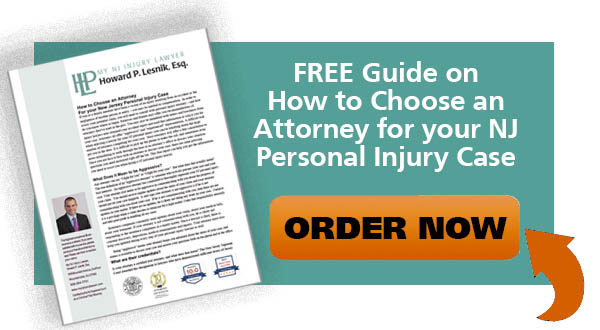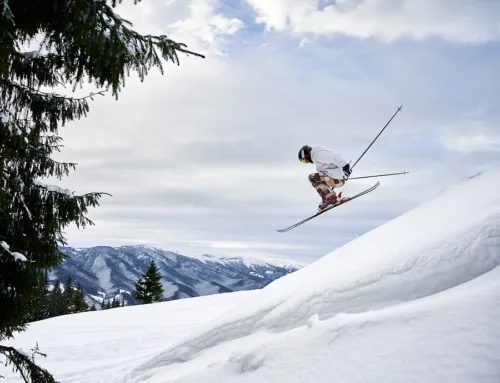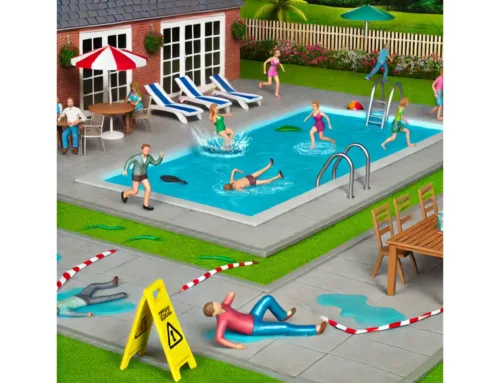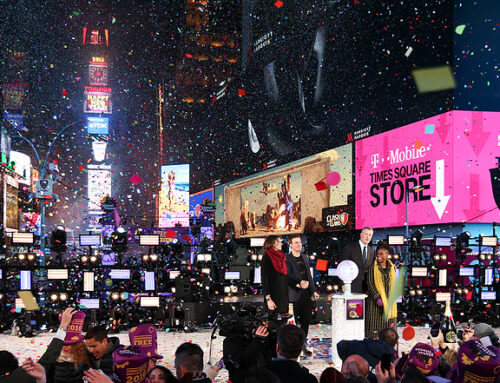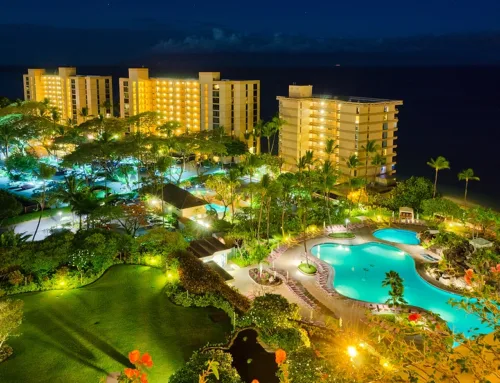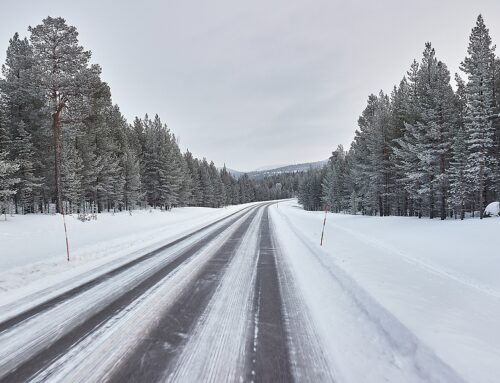New Jersey is fortunate to be home to many amusement parks, from local theme parks to Six Flags. Six Flags is one of the largest amusement park, water park and safari chains in the country. Theme parks provide a sense of adventure, playfulness, and safety within their borders – which is why it seems all the more jarring when something goes wrong and someone is hurt. The idea of an accident at an amusement park conjures up images of roller-coaster disasters, but as a fraction of all personal injury claims at theme parks, these catastrophes are thankfully rare. Much more commonly, the sort of accidents that result in an injury claim and a potential lawsuit are rather mundane: the same sort of slip and fall accident that can happen in a supermarket or a restaurant.
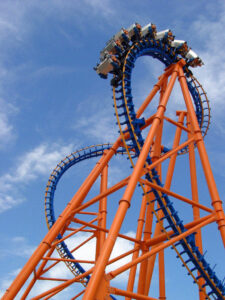 However, an amusement park is a very different compared to these other commercial establishments. The situations that can result in slip and fall hazards likewise look somewhat different. A common circumstance at an amusement park might see visitors standing in lines outdoors in the bright sunlight for extended periods of time, and when they enter a dimly-lit indoor space for an attraction, a restroom, or a refreshment area, their eyes will require a critical few moments to adjust to the difference in brightness. Similarly, moving from an unlit indoor space to the bright outdoors may dazzle a visitor’s vision briefly. In areas where food is served, if any sort of spill or debris is allowed to remain on the ground in these areas, it presents an even greater slipping hazard than it would otherwise because the vision of a person moving through the space can be expected to be temporarily impaired. A wet deck or even a mat that is misplaced at a water park can become a hazardous condition.
However, an amusement park is a very different compared to these other commercial establishments. The situations that can result in slip and fall hazards likewise look somewhat different. A common circumstance at an amusement park might see visitors standing in lines outdoors in the bright sunlight for extended periods of time, and when they enter a dimly-lit indoor space for an attraction, a restroom, or a refreshment area, their eyes will require a critical few moments to adjust to the difference in brightness. Similarly, moving from an unlit indoor space to the bright outdoors may dazzle a visitor’s vision briefly. In areas where food is served, if any sort of spill or debris is allowed to remain on the ground in these areas, it presents an even greater slipping hazard than it would otherwise because the vision of a person moving through the space can be expected to be temporarily impaired. A wet deck or even a mat that is misplaced at a water park can become a hazardous condition.
Due to the nature of theme park settings, the kinds of substances and circumstances likely to contribute to an amusement park fall are very common: slippery decks, food and drinks, including slippery frozen treats, are readily available and often placed in the hands of children who may drop them. Maps and brochures, trash from snacks or meals, and other bits of refuse may be carelessly discarded by other visitors who cannot be bothered to locate a disposal receptacle. Even sunscreen spray bottles can litter the pathways. Children and adults who may have just helped themselves to a ready supply of snacks and treats often go on nausea-inducing rides, potentially resulting in puddles of vomit in which the unwary may slip. As all of these circumstances may be reasonably anticipated by the proprietors of a theme park, those operators have a duty of care to exercise diligence in protecting visitors from the risk of an amusement park fall resulting from an encounter with one of these hazards.
Rollercoaster rides provide insane speeds, gravity defying drops, corkscrews and upside-down thrills. The rides require all riders to leave all backpacks, phones, wallets, change and loose items in lockers. However, not all riders follow the rules. And when loose objects fall during high-speed rides, they can cause serious damage to unsuspecting and innocent riders. Even a loose small coin can cause traumatic brain injury (TBI) if it hits another rider in the head. Imagine the damage a cell phone could do if it is fumbled by a rider trying to video a rollercoaster if it hits another rider.
Any visitor to an amusement park will fall into one of two categories, which will determine what kind of duty of care the property managers owe them: an invitee or a trespasser. An invitee is a visitor who was admitted into the theme park and, at the time of their injury, was in a location that was open to customers – not an employees-only area or a section closed off for repairs. A trespasser either sneaks onto the park grounds the amusement park is closed to the public, or enters an area of the park that is clearly restricted to visitors. The duty of care owed to trespassers by the property managers is much less stringent than that owed to invitees – essentially the only duty owed to trespassers is to avoid causing deliberate, unnecessary harm. The point of contention in these cases often revolves around whether a space within the park was marked off as restricted clearly enough that the would-be trespasser should have known that it was off-limits. If a visitor is injured in a restricted area but can convince a jury that there was not sufficient signage to make it clear that the area was forbidden, the property possessor is considered to have owed them the more stringent duty of care. This means that if the owner knew or should have known about a hazard, or if a hazard is foreseeable and recurrent, they must warn visitors about it and attempt to remove or resolve the hazard promptly.
Even if it does not involve a dramatic mechanical malfunction of a park ride, falls in amusement parks can cause serious injuries. There are many elevated surfaces, including steps and ramps, from which a park visitor might fall, and the ground is typically hard pavement. This combination of factors makes sprains, fractures, and traumatic brain injuries likely outcomes of an amusement park fall. Unfortunately, large theme park chains have teams of lawyers ready to fight lawsuits, because losing an injury suit makes their family-friendly park seem dangerous. Additionally, there are statutory notice requirements after an in jury at an amusement park. If you have a strong case, and you have abided by the statute’s notice requirements, the park’s owners may prefer to settle out of court. It’s important to have an experienced injury attorney, to ensure your settlement is fair.
Pro-tip: A slip and fall at an amusement park is different than an injury that happens on a ride at an amusement park. If you are injured on a ride, there are amusement park notice requirements that must be timely filed, or you may lose your right to file a claim for an injury from a ride. You need proof that the notice was provided in time as well.
Contact MyNJInjuryLawyer
If you or a loved one suffered an injury in an accident in NJ, you should contact an attorney familiar with handling these claims. An experienced NJ Injury Lawyer will know how to obtain medical records, videos, photographs, experts, locate witnesses and contact the insurance company so you can make a claim for your injuries.
My NJ Injury Lawyer Howard P. Lesnik, Esq. offers complimentary strategy sessions to address any issue or questions you may have for your injury claim in NJ.
Please contact NJ Injury Lawyer Howard Lesnik, Esq., immediately if you were involved in an accident. I personally handle NJ personal injury cases on a regular basis. Please contact me now by email, by phoning 908.264.7701, or by completing the form to the right to schedule your complimentary 30-minute strategy session.
